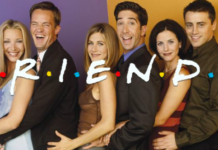The Witcher is a sword and sorcery fantasy series set on the chaotic “Continent”, a world of competing human kingdoms, magicians, monsters and people struggling to make lives.
So far perhaps so much like Game of Thrones. And if you are missing the show or still annoyed at the ending then The Witcher may help.
However, where The Witcher differs – and why it can claim to reinvigorate the genre – is by how deeply it seems to embrace the moral ambiguity of its world. Its characters rarely even conceive of themselves in terms of good or evil.
The shows challenges us with the view that things are rarely black and white – this is no Lord of the Rings. From Geralt, our flawed main character, to the sorceresses, powerful but farmed out as advisor concubines, to the various kingdoms, it is constantly unclear who we as viewers should want to prevail – or indeed what movement towards progress might be.
Geralt, the Witcher of the title, is a troubled loner, the last of his kind, a breed of man, made to be a soldier and long-lived but also barren by a magic initiation. Our “hero” is an outsider making a few coins as a sword for hire but treated by disdain or fear even by those who need his services.

What Geralt has is a sort of code of behaviour, of a quite flexible type but then suddenly quite solid when limits are met. He often becomes frustrated, wanting to speak against the twisted world around him, but he understands his outsider status and resists getting involved.
Played by Henry Cavill, he is often reduced to having to curse or grunt – occasionally spit out a joke. This is a character torn between wanting to be left alone but at the same time being dragged into moral dilemmas by his own brand of righteousness. And to pile on the misery he even has a jester that latches onto him to torment him with catchy exaggerated songs of his deeds.
No doubt the misunderstood warrior, with outsider status and a personal idea of morality, appeals to a certain type of alienated teenage male. But this show also has a wider appeal in our often cynical, turbulent times as a parallel world of moral chaos.
this show appeals in our often cynical, turbulent times as a parallel world of moral chaos
And without giving too much away, the structure of the series also rejects simplicity.
Beware when watching that the journeys of the various characters in the show are not simply done in parallel. You will have to work out the chronology yourself, much like having to work through the morality.
These other characters include sorceress Yennefer (Anya Chalotra), torn between beauty and power. Born deformed she gains beauty through the power of chaotic magic and is groomed to serve the rulers of the land. But then beauty has its limitations and she yearns for power while still learning the price that comes with it.
And we also have Ciri (Freya Allen), a princess in exile. She is lost in the world, pursued but befriending other strays. All she has left is a command from her dying mother that she must find Geralt of Rivia. Life outside the castle, she soon learns, teaches the harsh realities of life and she must toughen up or perish.
This is a savage and violent and, occasionally, naughty tale of sword and sorcery which I heartily recommend.
Revel in it, let it all wash over you, and when you inevitably get a little confused about how all the time-travelling pieces fit together don’t worry – it will all become clear.
And given this is part of a big series of very popular books, prepare for more.



